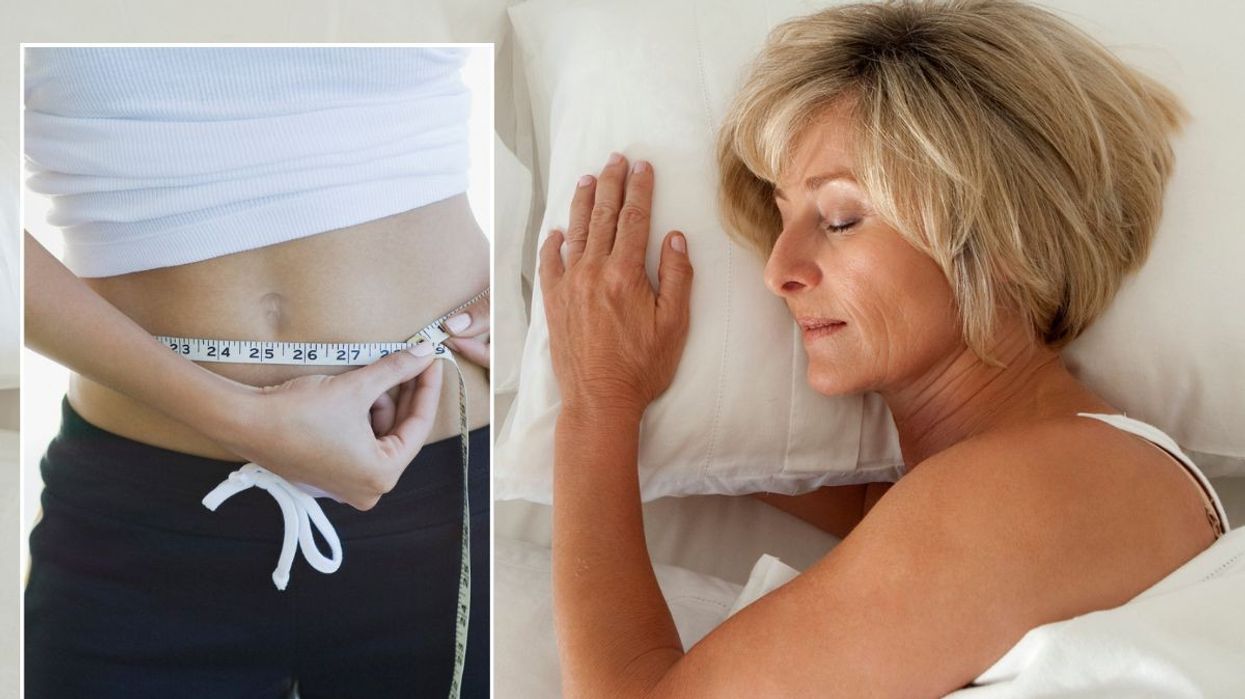'I'm a doctor and the foundation of weight loss for women over 50 is a specific amount of sleep'

Women in their 50s and beyond can see weight loss results by getting a better night's sleep
|GETTY IMAGES

Women in this age group should aim for at least seven hours of quality sleep per night
Don't Miss
Most Read
Women in their 50s may find that they're struggling to get rid of excess fat more than they did in their younger years. However, this does not mean losing weight in middle age and beyond is impossible.
According to a naturopathic doctor, getting enough quality sleep is essential for women in this age group.
Dr Anthony Balduzzi, founder of The Fit Mother Project - Fitness for Busy Moms, explained that it becomes harder for women to lose weight in their 40s, 50s and 60s. Because the metabolism starts to slow down, weight loss methods that worked for them in their younger years may not be effective.
Hormonal changes can also lead to weight gain. During the perimenopause and menopause period, oestrogen levels start to decrease, which affects other hormones. It causes a reduction in insulin sensitivity, which is a key hormone that helps us process sugar and carbs.
But despite these natural obstacles, lifestyle habits including getting a good night's sleep, eating well, weight training and keeping active can all help a woman in her 50s and beyond lose weight.

'Most women don't know that sleep - especially in their 40s, 50s and 60s - is the foundation of weight loss'
|GETTY IMAGES
Dr Balduzzi said: "Most women don't know that sleep - especially in their 40s, 50s and 60s - is the foundation of weight loss. Sleep is like the master clock that controls all of our main weight loss hormones: cortisol, insulin, and the thyroid hormone.
"When we don't get enough sleep, we're basically shooting ourselves in the foot when it comes to our weight loss efforts.
"The research shows that women who don't sleep enough and then go on diets end up losing muscle and not fat - and it's more likely that they'll gain weight after they stop the diet."
To "get their sleep in check", women in this age group need to aim for at least seven hours of "quality" sleep per night.
Quality sleep means sleep devoid of waking up in the night to use the toilet or being woken up by children or animals.
The doctor's weight loss tips for women over 50
- Be aware that your metabolism is slowing down: the weight loss methods that worked for you before may not work now
- Get into a fat loss mindset and think about why you want to make the change
- Prioritise quality sleep
- A healthy diet is more important than exercise: you can't out-exercise a bad diet - healthy eating is the foundation
- Daily activity (5,000 steps per day to boost the metabolism and control hunger and appetite hormones - particularly beneficial weight loss benefits if done after eating a meal)
- MRT (Metabolic Resistance Training) workouts: 45-minute strength training workouts using weights combined with cardio
The doctor explained that without getting a high quality of sleep, diet and exercise are rather redundant. This is because poor sleep keeps the body in "constant stress".
Adopting a healthier, more effective sleep schedule can be made easy with hacks such as using an eye mask, wearing ear plugs, drinking herbal teas before bed and reducing the temperature in your bedroom.
LATEST DEVELOPMENTS:

'Sleep is like the master clock that controls all of our main weight loss hormones'
|GETTY IMAGES
The NHS provided some key tips for people who want to improve their sleep quality. Having a regular sleep schedule - also known as sleep hygiene - is important. Britons should aim to start winding down at around the same time every day and waking up at around the same time every day.
The NHS also recommended relaxing, unwinding and using meditation to sleep better. In a similar vein, mindfulness is important because anxious and worried thoughts can affect a person's sleep. The right sleeping environment, considering light, temperature and sound, is also key.
The experts added: "A good diet and regular physical exercise can help us to relax and get better sleep."
Avoid eating a big meal too close to bedtime, and limit caffeine consumption between one to two hours before bed. Regular exercise also helps sleep, but it's best to steer clear of physical activity 90 minutes before bedtime if it hinders your sleep.
For Britons looking to lose weight, experts have named four drinks that fuel visceral fat gain.










